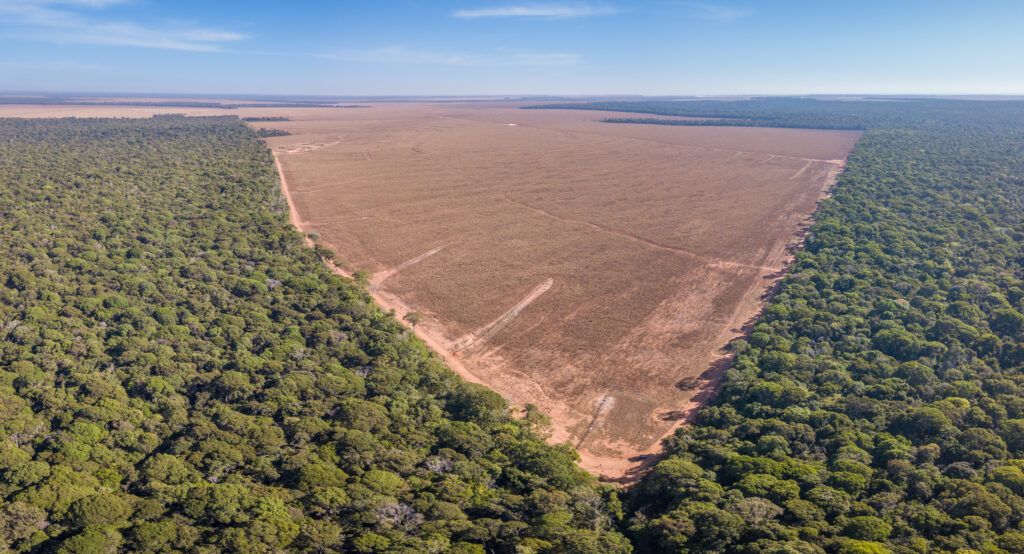A Holistic Climate Project for Small Islands

Island ecosystems are often isolated and fragile and hence are more vulnerable to the effects of climate change. In addition, islands are often isolated and unprotected and bear the brunt of extreme weather and sea level rise. Ocean systems that surround islands can quickly change leading to an abrupt alteration in ecosystems and dynamics. For these reasons small, isolated islands, especially those in the Pacific are most vulnerable to climate change either from physical loss of terrain, salt intrusion in soil, or loss of ecosystems and species in both terrestrial and marine environments that are key to community wellbeing. We supported a client to develop a comprehensive cross-cutting project in a group of Pacific Islands whose economy was reliant on nature-based tourism, fisheries, and agriculture, all of which are being negatively impacted by climate change. The project endeavored to decarbonize the tourism industry through the implementation of clean energy systems in the most populated islands, improve the efficiency and productivity of farming through better land management and removal of invasive species, develop adaptation strategies for the fisheries sector, and develop capacity within each of those sectors to increase awareness and resiliency. We aided the client and several institutional stakeholders in identifying and aligning the project goals and the theory of change that would be most successful in reaching that goal. Our expertise in driving this process with multiple stakeholders was key to the success of this stage of the project. Furthermore, our expertise in technical systems such as clean energy was crucial in developing a project that was additional and practical. This comprehensive, multifaceted, and multidisciplinary project successfully reached its funding goal and is in implementation having relied on our guidance that took an ambitious idea and created a practical, impactful, and successful project. Understanding the communities’, the client’s, and the funder’s needs are important aspects in putting a successful proposal together to mobilize finance for a project. With our deep experience and broad knowledge base in climate finance, we are able to deliver results. Reach out to us. We have anonymized this story to protect the confidentiality of our client and where it took place, but the actions and results are real. Back to Stories Page Our Stories AvaTerra Global has vast global experience leading high-impact engagements across the climate, development, and sustainable investment landscapes. We invite you to read about some of the results we have delivered for our clients. A Holistic Climate Project for Small Islands Adaptation | Capacity Building | Clean Energy | Climate Finance | Nature-Based Solutions | Theory of Change Island ecosystems are often isolated and fragile and hence are more vulnerable to the effects of climate change. In addition,… Read More Aligning Ambition: Building a Climate Investment Vision that Can Attract Finance Climate Finance | Climate Investment Planning | Country Platforms In a country seeking to scale up climate action, the government set out to develop a climate investment plan that… Read More Bridging the Gap: From Climate Proposals to Bankable Finance Climate Finance | Investment Mobilization | Nature-Based Solutions A leading organization in nature-based solutions had a bold vision – channeling finance to ecosystem services, agroforestry, and smallholder resilience.… Read More Building Knowledge, Building Adaptation Adaptation | Capacity Building | Climate Finance | Climate Policy | Institutional Development | Investment Mobilization A well-established training institution in a geographically diverse and highly populated part of the world was looking to integrate adaptation… Read More Creating a Fund to Kickstart Climate Ready Technologies Adaptation | Climate Finance | Climate Rationale | Climate Technologies | Decarbonization In East Asia there are worsening natural disasters resulting from extreme weather events such as typhoons, heavy rainfall, and droughts,… Read More Developing Carbon Trading Methodologies for Increased Recycling of Solid Waste Carbon Trading | Climate Finance | Decarbonization | Investment Mobilization Deforestation is the primary source of greenhouse gas (GHG) emissions in much of the humid tropics, with a significant amount… Read More Investing in Advanced Low-Carbon Climate Technologies Climate Finance | Climate Technologies | Decarbonization | Investment Mobilization | Technology Transfer A Fortune 500 company was interested in identifying emerging low-carbon technologies (LCTs) and applications where the company could apply its… Read More Nature-Based Solutions to Combat Water Related Disasters Climate Finance | Disaster Preparedness | Disaster Risk Management | Early Warning Systems | Nature-Based Solutions | Water Sector Parts of South-East Asia are at extreme risk from the impacts of typhoons and resultant flooding. One such area was… Read More Raising Profiles, Raising Finance Climate Investment Planning | Climate Rationale | Institutional Development | Investment Mobilization | National Meteorological and Hydrological Services (NMHS) A leading ministry in a Least Developed Country was keen to raise its profile across government as a key enabler… Read More Tackling Illegal Tropical Deforestation through Climate Policy Adaptation | Climate Finance | Climate Policy | Deforestation | Theory of Change Deforestation is the primary source of greenhouse gas (GHG) emissions in much of the humid tropics, with a significant amount… Read More Let’s Stay Connected If you’re exploring opportunities to collaborate or want to see how we can support your work, provide your email address and sector here. Knowing a little about your context helps us better understand how we can support you. Get in touch with our experts
Tackling Illegal Tropical Deforestation through Climate Policy

Deforestation is the primary source of greenhouse gas (GHG) emissions in much of the humid tropics, with a significant amount occurring illegally. Not only does this have negative climate impacts but also far-reaching biodiversity and social consequences. In a country where forested landscape makes-up a large part of its geography, illegal deforestation was primarily being caused by mining activities and agricultural expansion, with wealthier landowners often preying on poorer communities to implement their illegal activities. States have principally relied on the federal government for law enforcement, however, this strategy has proven to be inconsistent and dependent on which political party holds power in the capital. For this reason, a consortium of States has agreed to greater cross border cooperation including policy and law enforcement to curb illegal deforestation. Direct action against illegal actors is more effective when policies, laws and enforcement tactics are standardised, coordinated, and shared among states in a federally governed country. With a high-level framework agreed to among states, a client sought to develop a cross-cutting GHG mitigation and adaptation project that would create a consistent policy environment for state governments and standardised training and legal structure for law enforcers. Combined with adaptation measures that aimed to create employment and development in areas of high illegal deforestation, this project promises to be highly effective at reaching net zero deforestation by 2030, the country’s ambitious goal. We worked with the client to develop the project from a funding and effectiveness lens. Using our expertise in policy and adaptation strategies, we helped develop a clear identification of the problem and the theory of change that would lead to achieving state and national objectives. We then supported the client to create sound and practical activities that could be funded by the international community. We then developed a proposal to access funding from an international donor. Identifying the problem, putting in place the right policies, and accessing financing are all frequent challenges faced by countries seeking to achieve their climate ambitions and mobilize funds from the international community. Developing a theory of change and the right activities that can address the underlying causes of a problem while achieving the desired objectives of the investment are common areas where we see countries requiring support. Reach out to us and let us help you design the right activities and theory of change to achieve outcomes and support your climate finance mobilization needs. We have anonymized this story to protect the confidentiality of our client and where it took place, but the actions and results are real. Back to Stories Page Our Stories AvaTerra Global has vast global experience leading high-impact engagements across the climate, development, and sustainable investment landscapes. We invite you to read about some of the results we have delivered for our clients. A Holistic Climate Project for Small Islands Adaptation | Capacity Building | Clean Energy | Climate Finance | Nature-Based Solutions | Theory of Change Island ecosystems are often isolated and fragile and hence are more vulnerable to the effects of climate change. In addition,… Read More Aligning Ambition: Building a Climate Investment Vision that Can Attract Finance Climate Finance | Climate Investment Planning | Country Platforms In a country seeking to scale up climate action, the government set out to develop a climate investment plan that… Read More Bridging the Gap: From Climate Proposals to Bankable Finance Climate Finance | Investment Mobilization | Nature-Based Solutions A leading organization in nature-based solutions had a bold vision – channeling finance to ecosystem services, agroforestry, and smallholder resilience.… Read More Building Knowledge, Building Adaptation Adaptation | Capacity Building | Climate Finance | Climate Policy | Institutional Development | Investment Mobilization A well-established training institution in a geographically diverse and highly populated part of the world was looking to integrate adaptation… Read More Creating a Fund to Kickstart Climate Ready Technologies Adaptation | Climate Finance | Climate Rationale | Climate Technologies | Decarbonization In East Asia there are worsening natural disasters resulting from extreme weather events such as typhoons, heavy rainfall, and droughts,… Read More Developing Carbon Trading Methodologies for Increased Recycling of Solid Waste Carbon Trading | Climate Finance | Decarbonization | Investment Mobilization Deforestation is the primary source of greenhouse gas (GHG) emissions in much of the humid tropics, with a significant amount… Read More Investing in Advanced Low-Carbon Climate Technologies Climate Finance | Climate Technologies | Decarbonization | Investment Mobilization | Technology Transfer A Fortune 500 company was interested in identifying emerging low-carbon technologies (LCTs) and applications where the company could apply its… Read More Nature-Based Solutions to Combat Water Related Disasters Climate Finance | Disaster Preparedness | Disaster Risk Management | Early Warning Systems | Nature-Based Solutions | Water Sector Parts of South-East Asia are at extreme risk from the impacts of typhoons and resultant flooding. One such area was… Read More Raising Profiles, Raising Finance Climate Investment Planning | Climate Rationale | Institutional Development | Investment Mobilization | National Meteorological and Hydrological Services (NMHS) A leading ministry in a Least Developed Country was keen to raise its profile across government as a key enabler… Read More Tackling Illegal Tropical Deforestation through Climate Policy Adaptation | Climate Finance | Climate Policy | Deforestation | Theory of Change Deforestation is the primary source of greenhouse gas (GHG) emissions in much of the humid tropics, with a significant amount… Read More Let’s Stay Connected If you’re exploring opportunities to collaborate or want to see how we can support your work, provide your email address and sector here. Knowing a little about your context helps us better understand how we can support you. Get in touch with our experts

